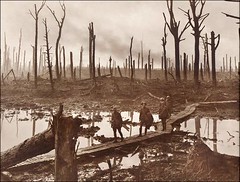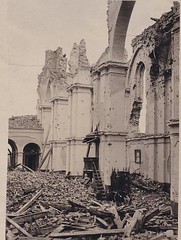Strange Fruit: The Making of a Protest Song
5 Questions About: Star Wars
Essay: On Mowing the Lawn
An Atheist Watches "The Passion of the Christ"
5 Questions About: Documentary Films
Under God's Right Arm: The Glorious Rev. Falwell
"Maus" Revisited
Fantastically Bad Cinema: Music & Lyrics
The Short, Short Story Contest
Literary Criticism
Fantastically Bad Cinema
Essays
Under God's Right Arm
June 2006
July 2006
August 2006
September 2006
October 2006
November 2006
December 2006
January 2007
February 2007
March 2007
April 2007
May 2007
June 2007
July 2007
August 2007
September 2007
October 2007
November 2007
December 2007
January 2008
February 2008
March 2008
April 2008
May 2008
June 2008
July 2008
August 2008
September 2008
October 2008
November 2008
December 2008
January 2009
February 2009
March 2009
Alcoholic Poet
Baby Got Books
Beaman's World
BiblioAddict
Biblio Brat
Bill Crider's Pop Cultural Magazine
The Bleeding Tree
Blog Cabins: Movie Reviews
A Book Blogger's Diary
BookClover
Bookgasm
Bookgirl's Nightstand
Books I Done Read
Book Stack
The Book Trib
Cold Hard Football Facts
Creator of Circumstance
D-Movie Critic
The Dark Phantom Review
The Dark Sublime
Darque Reviews
Dave's Movie Reviews
Dane of War
David H. Schleicher
Devourer of Books
A Dribble of Ink
The Drunken Severed Head
Editorial Ass
Emerging Emma
Enter the Octopus
Fatally Yours
Flickhead
The Genre Files
The Gravel Pit
Gravetapping
Hello! Yoshi
HighTalk
Highway 62
The Horrors Of It All
In No Particular Order
It's A Blog Eat Blog World
Killer Kittens From Beyond the Grave
The Lair of the Evil DM
Loose Leafs From a Commonplace
Lost in the Frame
Little Black Duck
Madam Miaow Says
McSweeney's
Metaxucafe
Mike Snider on Poetry
The Millions
Moon in the Gutter
New Movie Cynics Reviews
Naked Without Books
A Newbie's Guide to Publishing
New & Improved Ed Gorman
9 to 5 Poet
No Smoking in the Skull Cave
Orpheus Sings the Guitar Electric
Polly Frost's Blog
Pop Sensation
Raincoaster
R.A. Salvatore
Reading is My Superpower
Richard Gibson
SciFi Chick
She Is Too Fond Of Books
The Short Review
Small Crimes
So Many Books
The Soulless Machine Review
Sunset Gun
That Shakesperherian Rag
Thorne's World
The Toasted Scrimitar
This Distracted Globe
Tomb It May Concern
2 Blowhards
Under God's Right Arm
A Variety of Words
The Vault of Horrr
Ward 6
When the Dead Walk the Earth
The World in the Satin Bag
Zoe's Fantasy
Zombo's Closet of Horror
Bookaholic Blogring
Power By Ringsurf
(The Great War (1914-1918) – also known as the War to End All Wars and World War One – has always fascinated DaRK PaRTY. One reason is that DP’s grandfather volunteered for the
DaRK PaRTY: Was the Great War really caused by the assassination of Archduke Franz Ferdinand?
William: All wars have long-term causes and short-term causes. The assassination of the Archduke was the short-term cause. The long-term causes were: Anglo-German naval rivalry, the conflicting goals of the 
DP: The causalities from the Great War were enormous -- nearly 20 million dead and missing and 20 million wounded. Is it accurate to say that an entire generation of European men was wiped out?
William: It is an exaggeration to say that an entire generation was wiped out, but a significant proportion of the men of fighting age in the belligerent states were either killed or severely wounded.
DP: The Great War was infamous for long battles with high causality counts. Which battle turned out to be the most significant and why?
William: The
DP: What wa s the most significant impact of the Great War on modern society?
s the most significant impact of the Great War on modern society?
William: There were so many important consequences of the war. If forced to choose one, I would say that the mechanization of warfare during World War One ended for good the old conception of war as a conflict among human beings in which individual initiative and bravery were the key elements in victory.
DP: Did the conditions of the peace negotiated after the Great War set the stage for World War 2? If the conditions had been different could WW2 have been avoided?
William: The peace settlement of 1919 has been unfairly maligned as the cause of World War Two. In fact, the peace settlement was much less vindictive that its critics, beginning with (John Maynard) Keynes, claimed if Germany had accepted the relatively moderate peace terms and learned to live with its smaller territory, Europe would have been spared the agony of another much more destructive war.
Read our post on 12 Valuable Lessons from Hollywood
Labels: 5 Questions, Great War, History, interview, William R. Keylor
 StumbleUpon |
StumbleUpon |
 del.icio.us |
del.icio.us |
 Technorati |
Technorati |

This work is licensed under a Creative Commons Attribution-No Derivative Works 3.0 License.
The Template is generated via PsycHo and is Licensed.




